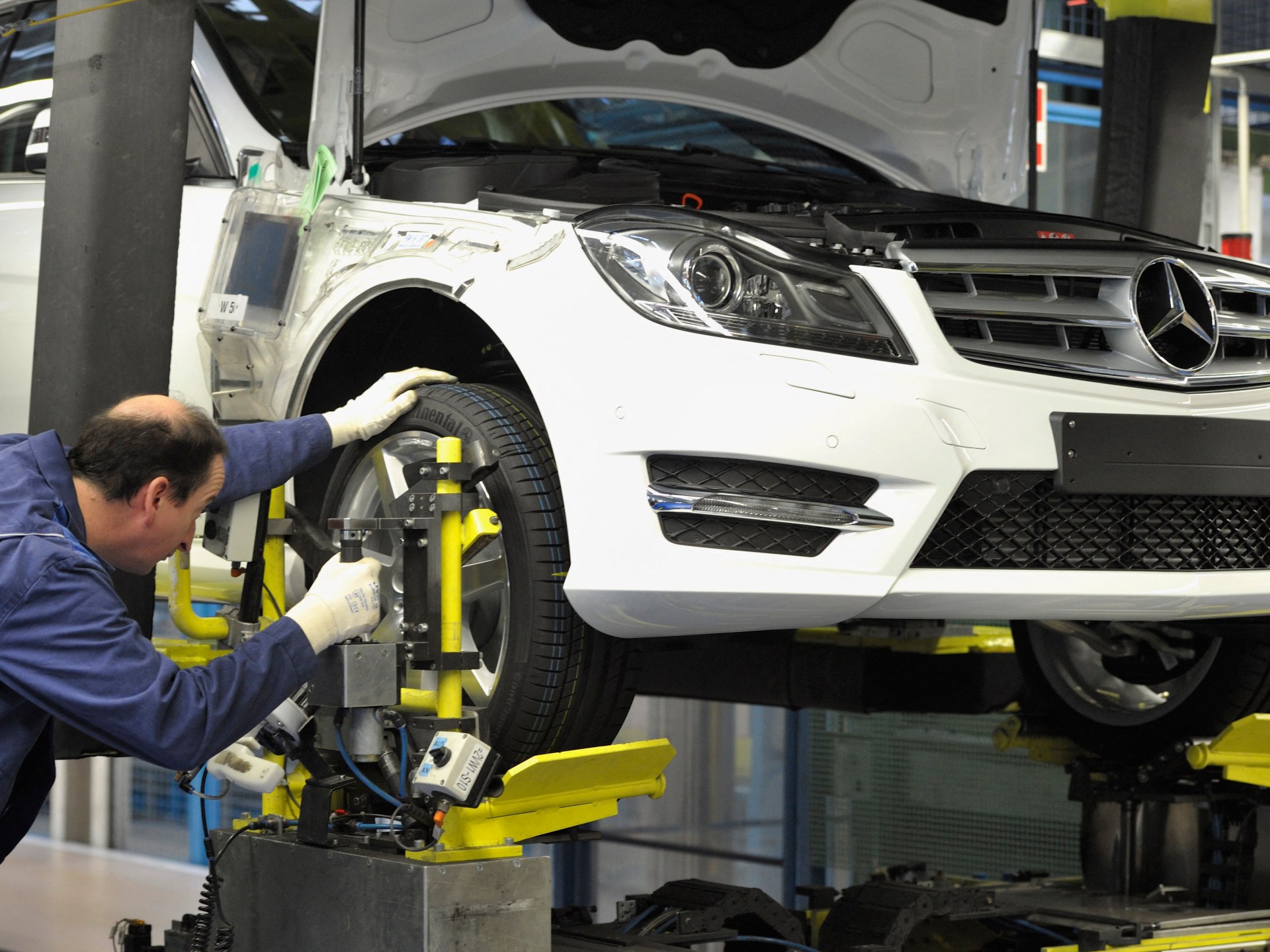Mercedes called for reducing EU customs duties on Chinese electric cars (French)
The European Union plans to impose punitive tariffs on electric cars coming from China, in order to protect local car companies from cheap competition, but Mercedes-Benz CEO Ola Källenius said that his company is not asking for protection, according to what the German magazine “Der Spiegel” quoted him as saying.
According to a report by the magazine, European car manufacturers have been important players in the global market for decades, but with the increasing focus on electric cars, Chinese manufacturers are gaining market share, and the European Union Commission accuses China of giving advantages to local manufacturers through illegal subsidies.
The European Commission will decide in the coming months whether to impose higher import duties on electric cars imported from China.
But the German auto industry in particular is not very enthusiastic about these plans, according to the head of Mercedes-Benz, who called on the European Union Commission to reduce customs duties on electric cars imported from China, adding, “Don’t raise the tariffs. I don’t agree with that, and I think we "We have to go the other way, lower tariffs."
Der Spiegel reported that the European Union, in turn, recently took the first steps to impose retroactive import duties on Chinese electric cars, and while French automakers - such as Renault - do not have significant business in China, and are waging a campaign on tariffs, German automakers It relies heavily on business in China, and fears the Chinese government's reaction.
Mercedes believes that Chinese companies' efforts to export to Europe are a natural development in competition (Reuters)
In the wrong direction
Kallenius said competition with China helps European manufacturers produce better cars in the long term, and that the EU's protectionist measures are "going in the wrong direction."
He added that Chinese companies' desire to export to Europe is "a natural evolution of competition that must be met with better products, better technology and more flexibility. This is a market economy. Let's let the competition take its course."
Mercedes does not rely solely on China for sales, according to the German magazine, as about 20% of the company's shares are owned by the Chinese automakers Geely and BAIC.
The European Commission has been conducting an investigation into Chinese subsidy practices since last October, and the decision on whether customs duties will be imposed to protect manufacturers in the European Union depends on the outcome of the investigation, which is expected to be completed by next November.
“We did not ask for this,” Kallenius said, referring to the committee’s plans. “We as a company do not ask for protection, and I believe that the best Chinese companies do not ask for protection either. They want to compete in the world like everyone else.”
The Mercedes director said that history shows that protectionist measures do not lead to long-term success, adding, "The openness of markets has led to growth, especially in the Chinese economic miracle, which has lifted hundreds of millions of people out of poverty."
Chinese electric cars are currently subject to a 10% tariff when imported into Europe, while European car manufacturers pay 15% when they export to China, and most German cars sold in China are produced there.
Kallenius explained that both sides should aim to create win-win economic situations, according to the magazine.
Source: German press

